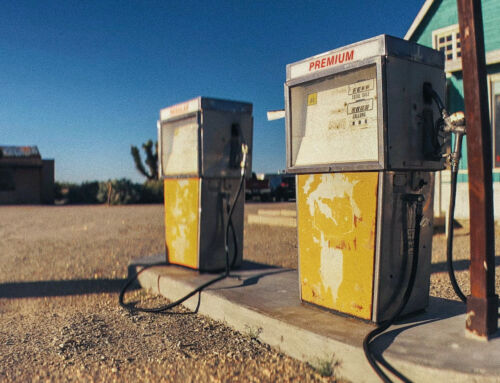View by Topic
Recent Articles
-
Congress Blocks California’s Gasoline Car BanSaturday, May 31st, 2025
-
EPA Will Keep Current Limits for “Forever Chemicals” in Drinking WaterSaturday, May 24th, 2025
-
Court Indefinitely Pauses SEC Climate Rule LitigationSaturday, May 17th, 2025
-
Maryland is About to Regulate Mold But is the Cart Before the HorseSaturday, May 10th, 2025
View by Month/Year
“Green Building Law Update” Headlines
Recent Articles & News from
Stuart Kaplow’s blog
at GreenBuildingLawUpdate.com
- EPA Will Keep Current Limits for “Forever Chemicals” in Drinking Water May 25, 2025
- Court Indefinitely Pauses SEC Climate Rule Litigation May 18, 2025
- Maryland is About to Regulate Mold: But is the Cart Before the Horse? May 11, 2025
- BEPS Redux: The Most Far Reaching Environmental Legislation of the 2025 Maryland General Assembly May 4, 2025
Subscribe to the Green Building Law Update!
Stuart Kaplow brings his expertise and extensive experience to the table with his unique digital publication, "Green Building Law Update". Subscribers receive regular updates to keep them informed about important issues surrounding Environmental Law, Green Building & Real Estate Law, as well as the emerging demand for Environmental Social Governance (ESG).
Get fresh content through the lense of Stuart Kaplow's cutting-edge expertise, innovative commentary and insider perspective. Don't miss another issue! Subscribe below.

PepsiCo Wins Dismissal of New York Greenwashing Lawsuit Alleging Plastic Pollution
After this blog was posted, on December 9, 2024, Letitia James, the Attorney General of the State of New York filed a Notice Of Appeal of her office’s loss described below, to the Supreme Court of the State of New York.
On October 31, PepsiCo won a victory obtaining the complete dismissal with prejudice of a suit by New York Attorney General Letitia James alleging that PepsiCo had created a “public nuisance” of plastic litter and marine plastic pollution in New York’s Buffalo River and surrounding environs.
At a time when greenwashing claims have become de rigueur, it is hugely significant that PepsiCo is the first company to win a dismissal on the merits of these types of claims.
Upon filing the complaint in 2023, the New York Attorney General ran a media blitz publicly chastising PepsiCo for misrepresenting its “recyclability” efforts to the public.
Attorney General James claimed her office conducted a survey of plastic pollution in 2022 and that “PepsiCo and its 23 brands, including Frito Lay’s plastic packaging far exceeded any other source of identifiable plastic waste, as it was three times more abundant than the next contributor, McDonald’s.”
But following briefing and oral argument, the Honorable Emilio Colaiacovo of the New York Supreme Court rejected the Attorney General’s claims in a forceful 19 page opinion. The court held that using the tort of public nuisance in this way “is nothing more than selective prosecution based on a naïve theory” and that “this theory has never been adopted by a court in this state or any other.” The court also noted the “great cost” the State had incurred in bringing the suit, even though the Attorney General knew that “imposing civil liability on a manufacturer for the acts of a third party seems contrary to every norm of established jurisprudence.”
The Court made clear, “It is important to note that regardless of Defendant’s aspirational goals, Pepsi/Frito Lay did not pollute the Buffalo River or any other local waterways. Other people did!”
The Court concluded its opinion with a strong rebuke to the Attorney General for overstepping her authority: “While I can think of no reasonable person who does not believe in the imperatives of recycling and being better stewards of our environment, this does not give rise to phantom assertions of liability that do nothing to solve the problem that exists. Plaintiff’s proposed use of the judicial system to punish select purported offenders for what she believes to be a righteous cause risks transforming the judiciary into an arm of the legislature, or at the very least a passive partner in expanding duties that strain the bedrock of well-established law for policy purposes.”
The results in this case are important. There are other similar cases pending, filed by activist government officials and by radical environmentalist groups, against consumer products companies. We blogged just days ago, Greenwashing? Court Says Coca-Cola’s Aspirational Statements May Mislead Consumers. And the day before this decision was issued, Los Angeles County announced a lawsuit against Coca Cola and PepsiCo on similar grounds alleging responsibility for plastic packaging littered in the California County. Of course, this New York decision is not binding on the California court, but it portends arguments that may be successful by businesses defending greenwashing claims in that case and others.
This decision should be interpreted as a major victory for business, not only for companies in the plastic supply chain, but all companies that look to mitigate their greenwashing reputational and legal risk.
_______________________
Join us for the next in our “carbon based life forms” webinar series, “Administration Change Drives Environmental Change” on Tuesday, December 17 from 9 – 9:30 am. The webinar is complimentary, but you must register here.









